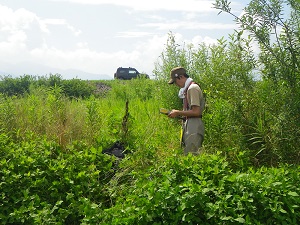Yuta Kobayashi

Functional diversity may help disaster risk reduction
Biodiversity loss is increasingly altering functioning of ecosystems and thus affects society. Works testing this issue since 1990 showed the importance of biodiversity to support ecosystem functions and services in addition to its ethical value. However, the knowledge for possible roles of biodiversity to support some ecosystem services is still rudimentary. One of the examples for this uncertainty includes the framework related to reduce disaster risk based on ecosystems. The 2011 off the Pacific coast of Tohoku Earthquake resulted in huge fatalities; there is a big debate about the potential of coastal vegetation to mitigate the impact of tsunami but the issue remains largely unknown. It is thus essential to unravel of processes how ecosystems buffer the impacts of natural disaster. Here I focus on the potential of disaster risk reduction by tree diversity in forested landscapes. The Fifth Assessment Report of the Intergovernmental Panel on Climate Change (IPCC) has projected possible increases in extreme events; that is, frequency and severity of natural disturbance will likely increase. My focus is to search evidence of biodiversity's roles to reduce disaster risk and increase resilience of human society, which will help social-ecological systems to build new approaches founded on the functionality of ecosystems.